Aluminum is a relatively new industrial metal that has been commercially produced for more than 100 years. Aluminum is a relatively soft, durable, lightweight, easily extensible and extensible metal that can form almost any shape, and its appearance varies from silver to dark gray, depending on the surface roughness. It is non-magnetic, not easy to ignite, and is a good conductor of heat conduction and electricity
Precision-machined aluminum parts are becoming the choice of many industries. Aluminum is one of the most popular materials due to its excellent mechanical properties. These include affordability, flexibility, durability and corrosion resistance. Today, precision-processed aluminum parts are becoming increasingly popular in automotive, aerospace, military, medical, and industrial engineering.
So today we will introduce Aluminum CNC Machined Parts in detail, including common Aluminum alloy grades, advantages, and applications.
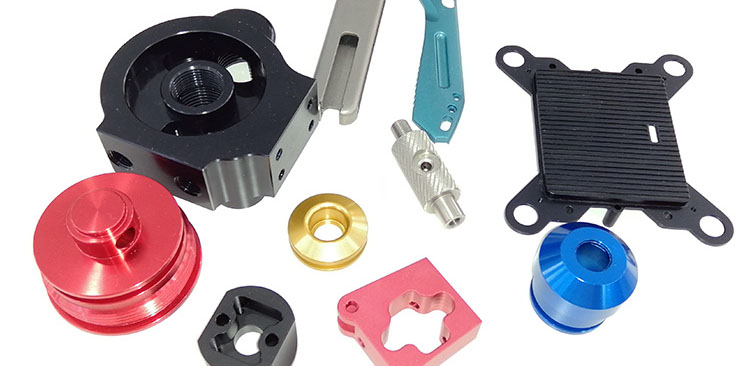
Aluminum Grade
In manufacturing, aluminum is rarely pure. Because pure aluminum is soft and has limited strength, it is too soft and insufficient for most industrial applications. Therefore, manufacturers usually add small amounts of elements, such as boron, copper, lithium, Magnesium, manganese, silicon, tin and zinc, etc., to improve the strength and rigidity of aluminum, aluminum alloy may be thirty times stronger than pure aluminum, while maintaining its other required properties.
The following are some commonly used aluminum grades, you can choose according to your needs.
Aluminum 2024
Due to its mechanical properties, such as high fatigue resistance, high strength and sensitivity to thermal shock, the alloy is widely used in aerospace and military applications, such as aircraft wings, wings, and tensile structures. Aluminum 2024 has poor corrosion resistance and cannot be welded.
Aluminum 6063
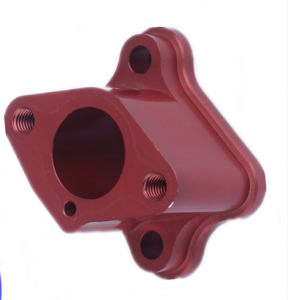
It has excellent mechanical properties, such as easy weldability, heat treatment and durability. But without heat treatment, the strength near the weld may be significantly reduced. Aluminum 6063 is used in aluminum extrusion applications. This alloy is commonly used to create complex shapes with smooth surfaces, and is commonly used in applications such as door frames, window frames, sign frames, roofs, etc.
Aluminum 6061
6061 aluminum alloy is a precipitation hardening aluminum alloy, with magnesium and silicon as the main alloying elements. With good toughness, medium strength and high strength, it has good mechanical properties, excellent corrosion resistance in harsh environments, easy anodization and good workability and weldability, so it is very commonly extruded (Second only to 6063). This grade is one of the most popular aluminum grades. Aluminum alloy 6061 is one of the most widely used alloys for 5-axis precision machining in the CNC machining workshop industry. It is mainly used to manufacture aircraft, ships, auto parts and bicycles.
Aluminum 7075
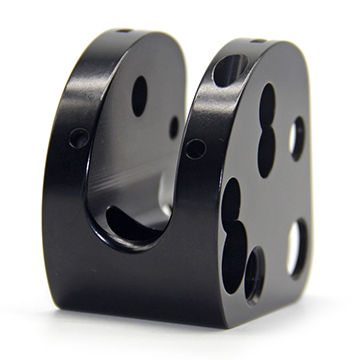 This is a popular type after 6061. Aluminum alloy 7075 is an aluminum alloy with zinc as the main alloying element. It has high strength, comparable to many steels, and has excellent fatigue strength and average cutting performance. It is not weldable and has limited corrosion resistance. In most cases, machine operations are performed using oil lubricants.
This is a popular type after 6061. Aluminum alloy 7075 is an aluminum alloy with zinc as the main alloying element. It has high strength, comparable to many steels, and has excellent fatigue strength and average cutting performance. It is not weldable and has limited corrosion resistance. In most cases, machine operations are performed using oil lubricants.
The cost is higher than other aluminum alloys, and its relatively high cost limits its use in applications that are not suitable for the use of cheap alloys.
It is most commonly used for tough parts such as aircraft wings and fuselages, bicycle parts, climbing equipment and aircraft wings.
Aluminum 5052
Aluminum 5052 is a non-heat treatable alloy. It is one of the most commonly used aluminum alloys in the manufacture of metal plates. It is easy to bend, punch, and shear into the desired shape. It has strong corrosion resistance and can well resist the ocean and salt water. And industrial environment. This is commonly used in nautical and aircraft equipment, street lights, gas stations and railings.
CNC Machined Aluminum Parts Advantages
Low Melting Temperature
Steel and aluminum have been popular for several years. These metals have unique advantages, making them ideal for various industrial applications. In terms of durability, these two steels are the most popular. However, if temperature changes are involved, steel is not the right choice. For example, steel cannot withstand higher welding temperatures or extremely low temperatures.
The actual melting and casting temperature of aluminum depends on other metals mixed into the alloy, but the casting temperature of aluminum alloys is usually lower than half of that of iron alloys (iron-containing alloys such as steel).
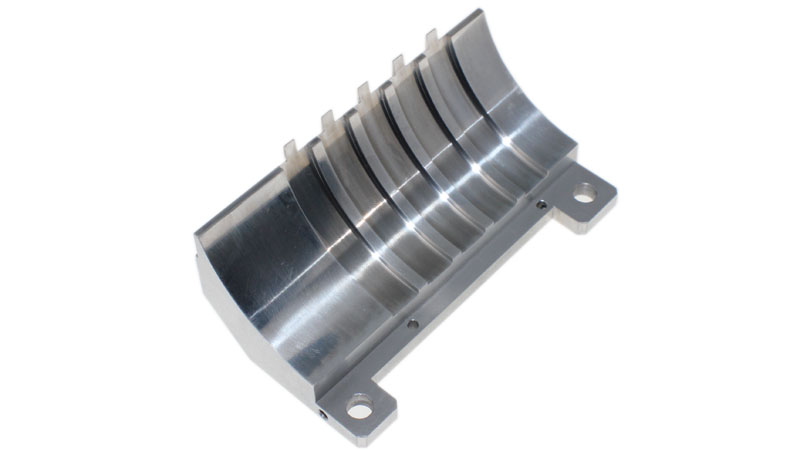
Due to its lower melting temperature, the aluminum alloy casting process consumes less energy than iron alloys. The setting time is also reduced, thereby increasing the productivity of the plant and further reducing costs.
Excellent Strength-to-Weight Ratio
Over the years, due to the high strength-to-weight ratio of aluminum parts, the demand for aluminum parts has increased. The material has high strength, but light weight. Compared with steel, the density of aluminum is much lower. This means that finished aluminum products will be much lighter than steel products of the same shape. The density of aluminum is about 2.5 times that of steel. Although aluminum is not as hard as steel, its lightweight design provides flexibility.
These two characteristics make it ideal for manufacturing critical parts for the automotive and aerospace industries.
Easy Machining
Unlike steel, aluminum materials can be easily rotated during processing, and the required parts can be easily manufactured by stamping, folding, and drilling without losing their material properties. You can use it to form various shapes of parts as needed. Compared with steel, the energy used in aluminum processing is much lower.
Custom Finishing
Aluminum can be customized according to customer requirements. You can do something to give it a perfect custom look. Aluminum alloy CNC parts can be plated with various colors according to your requirements. For example, they can be plated with colors including green, black, blue or any other desired color.
The CNC machining of aluminum is subject to several changes especially in the design and specifications, which gives it the flexibility of a fast transition by starting off a newly examined and approved program. Getting back to the past program whenever you need is also achievable, with reliable manufacturing of ordinary quality in the arising aluminum removal items.
Recyclable:
Aluminum machined parts are easily recyclable, which has contributed to their increasing use in industrial applications. If your company want to reduce carbon footprint, CNC machined aluminum parts are an ideal choice. As known, CNC machining is a subtractive process, where lots of material waste is created due to chipping. The material waste can be recycled to create a better product.
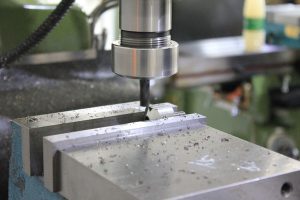
Excellent Corrosion Resistance
CNC machined parts made of aluminum can be used in various applications exposed to corrosive elements. Aluminum has relatively good corrosion resistance. If the product is affected by weather and elements, aluminum will form a relatively stable oxide layer, preventing it from further reacting with oxygen. If the aluminum surface is damaged, the layer will “repair” and reform almost immediately.
However, their corrosion resistance varies depending on the grade. For example, grade 6061 is known to have excellent corrosion resistance.
Excellent Conductivity:
CNC-processed aluminum parts also have good electrical conductivity, so they are also used in electrical applications. Although aluminum may not have the same level of electrical conductivity as copper, it is better than steel or other widely processed materials.
Aluminum Machined Parts Applications
- The combination of lightness, strength and ductility make aluminum an ideal material for transportation applications. It is used in automotive, aircraft, railway and marine applications, and is also used to manufacture fuel-efficient engines for cars and trucks. Light weight reduces fuel consumption and emissions.
- Aluminum helps build low-cost, corrosion-resistant buildings. All kinds of aluminum products can be used in new construction or renovation, and because of its strength and light weight, it can be used in earthquake-prone areas.
- It is a good reflector of light and is usually used in lighting equipment.
- A high proportion of the shock inflicted by an automobile in a motor vehicle accident is absorbed primarily by its aluminum structure..
- High-strength aluminum alloy withstands extreme pressures and pressures involved in high-altitude flight. The thin aluminum plate prevents cold air and air from entering. Many interior accessories inside the aircraft (such as aircraft seats) are made of aluminum or aluminum composite materials to reduce weight, thereby saving fuel, reducing emissions and increasing the aircraft’s payload.
- Aluminum cookware is easy to lift, requires much less heat than stainless steel or cast iron, and tableware can be heated quickly and evenly.
- Aluminum can be drawn into thin wires and is commonly used in products such as light bulbs and telephone wires.
(Related Post: All About Machining Anodized Aluminum Parts)
Although aluminum is not a difficult metal to machine, it is important to partner with the right CNC machine supplier, if you are looking for CNC machined aluminum parts for your aerospace or aeronautical applications or military or defense projects. SANS specializes in CNC aluminum machining, and has been delivering precision machined CNC machined parts to its clients across industries. We provide various CNC machining services including precision machining, CNC milling and turning, grinding, wire EDM and machining parts assembly.



